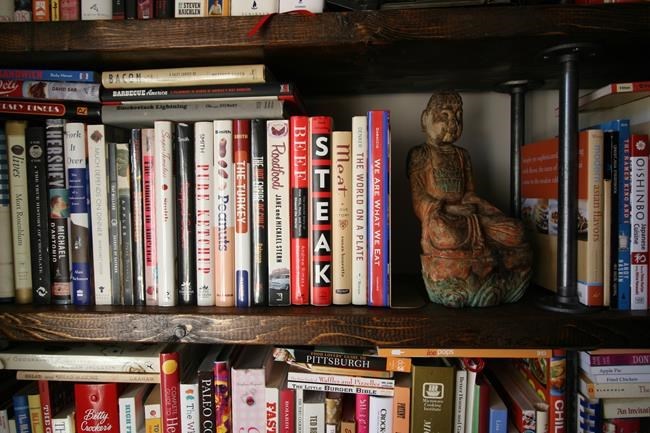 One sure way to get someone to read a book: Tell them they shouldn’t.
One sure way to get someone to read a book: Tell them they shouldn’t.
This week there was a fuss in Quebec where, after angry complaints about one of his selections, a booksellers’ group removed an online list of titles recommended by Premier Francois Legault.
The decision was quickly reversed following a counter-wave of outrage, this time from people who said pulling the list smacked of censorship. Among those up in arms was conservative writer Mathieu Bock-Cote, author of one of the premier’s picks, L’empire du politiquement correct.
In truth, Bock-Cote should have been doing back flips down Rue Ste-Catherine. From Nazi book-burnings, to the Soviets’ attempts to muzzle Alexandr Solzhenitsyn, to the Ayatollah Khomeini’s fatwah against Salman Rushdie, nothing drives sales like suppression by the Thought Police.
As one literary agent told the New York Times: “When Donald Trump recommends a book, it has little impact on sales, but when Trump hates a book, it rockets to No. 1. You pray for Trump to hate your book and you pray for him to tweet about it.”
On the flip side, nothing kills the appetite for a book like having it jammed down your throat. It’s like being told you should eat more kale.
“You must read this,” someone will say, thrusting a book at you like an accusation. “It will totally change the way you feel about the class struggle of oppressed artists in post-revolutionary Romania. Merry Christmas.”
“But I’ve never felt anything about the class struggle of Romanian artists,” you think to yourself, “and I sure don’t want to find a book about it under the tree. I want to find a book about Jason Bourne stabbing a man with a salad fork, or a Stephen King character being violently disembowelled by a demonic golden retriever/Studebaker, because that’s what Christmas is all about, Charlie Brown.” You don’t say this out loud, though.
Which brings us, finally, to today’s topic: Zoom meetings.
Or, rather, the bookshelves that form the backgrounds of so many video conferences.
These bookshelves have become the equivalent of date movies, the ones you go to when you’re still at the stage of the relationship where you’re trying to impress one another. At date movies, you squirm through something in black and white, probably subtitled, probably directed by Francois Truffaut or Ingmar Bergman, when what you really want is to be in the theatre next door watching Bruce Willis bring down an F-35 fighter jet with a semi-trailer truck. If it weren’t for first dates, Bergman would have worked at IKEA.
Same principle applies to bookshelves. Today, people peer into Zoom backgrounds as though they’re a window into your life. (“Wow, that vodka bottle was full yesterday. And is that a crack pipe?”) A well-stocked home library conveys character, erudition, intellect and also gives you something to stack under your iPad so that its camera angle doesn’t shoot straight up your nose.
You can’t just fill the shelves with any old books, though. Can’t just follow the example of the Victoria lawyer who, anxious to bring an air of gravitas to his office, once sent a staffer to the Times Colonist book sale to buy a couple of boxes of impressive-looking leather-bound volumes, never mind the subject matter. These days, people actually read the titles. (Ask any B.C. author: Having a book visible behind Keith Baldrey during his Global TV appearances from the legislature beats being picked by Oprah.)
The question is, how many Zoom background titles ever make it off the shelf? Some appear to be imprisoned there for life, having fallen into the category of “classic,” which Mark Twain defined as “a book that people praise but don’t read.”
The suspicion is many are simply plucked from internet lists with titles like 100 Books You Must Read Before You Die, a headline that implies not only obligation but a sense of urgency/impending doom. What fun motivation! Ulysses, Anna Karenina, Wuthering Heights — I’m sure they’re all fine stories, but my interest in reading them evaporated as soon as doing so was presented as a cross between a moral duty and a prostate exam. I mean, I’ve been trying to read Ford Madox Ford’s The Good Soldier since a pretty girl told me I should do so when I was 17. I’m still on page three.
She should have told me it was banned.



